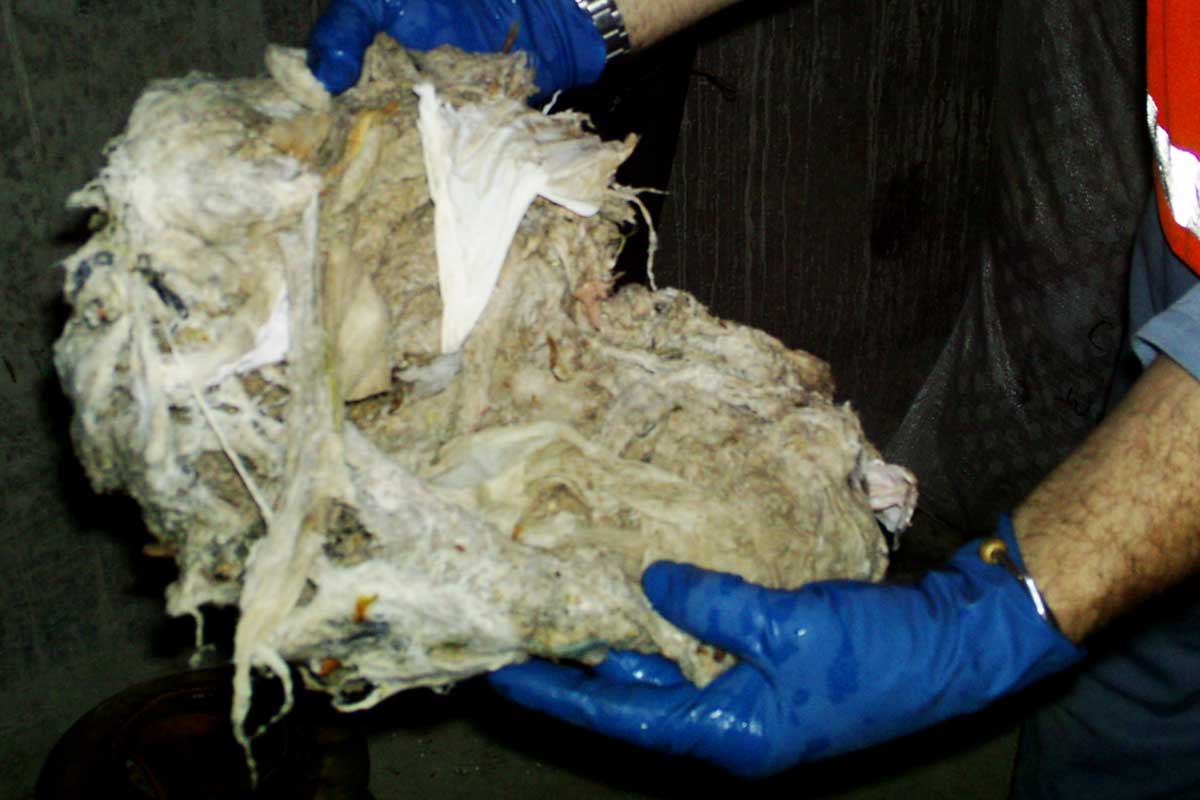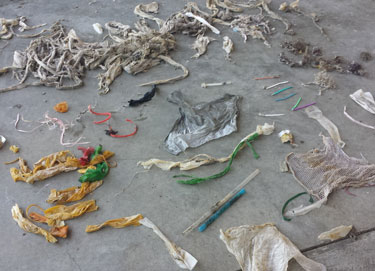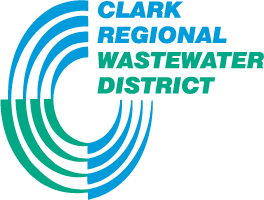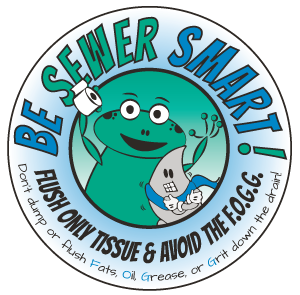What Not to Flush
Help Frog and F.O.G.G. be sewer smart by flushing only tissue
Fats, Oils, and Grease (FOG), non-dispersible materials (e.g. diapers & wipes) and solid food waste, blocking sewer pipes are a serious maintenance problem for both the District and private property owners. When grease washes down the sink, it sticks to the insides of sewer pipes. The build-up restricts flow and by its self or in combination with other materials can block pipes completely, causing raw sewage to back up into your home or overflow into streets and streams, potentially jeopardizing the public health and the environment. These sanitary sewer overflows (SSO’s) are a violation of the Clean Water Act. In addition, flushing FOG, non-dispersible materials such as rags, hair, latex, personal hygiene products, cleaning wipes, and solid food waste may inhibit the proper functioning of pump stations and the Wastewater Treatment Plant.
Home garbage disposals do not keep grease out of sewer pipes. The combination of grease and solid food waste from garbage disposal and non-dispersible material contribute to blockages in the sewer system. Products that claim to dissolve grease may dislodge a blockage, or temporarily change the form of grease allowing the grease to move further down the sewer line before re-congealing and forming blockages.
Homeowners: How You Can Help
Here are some guidelines for keeping sewers flowing.
- Never pour grease down sinks or toilets.
- Pour grease and oil into a can and put it in the trash (freeze the grease).
- Scrape food scraps into the trash. Alternatively compost food scraps.
- Catch food scraps with baskets or strainers in sink drains and throw scraps in the trash. Alternatively compost food scraps.
- Do not flush non-dispersible material such as rags, hair, latex, personal hygiene products, cleaning wipes. Dispose of this material in the trash.
- Flush only toilet paper down the toilet.
Questions? Please call Clark Regional Wastewater District at 360-993-8833.

Clogs like this are all too common.

These items were part of a 100-pound clog pulled out of the Glenwood pump station. The most common items, other than paper products, were hairballs. The crew also found toys, dental floss, toothpicks, wipes, latex products, pens, straws, candy wrappers, various trash items, cloth rags, and balloons.

